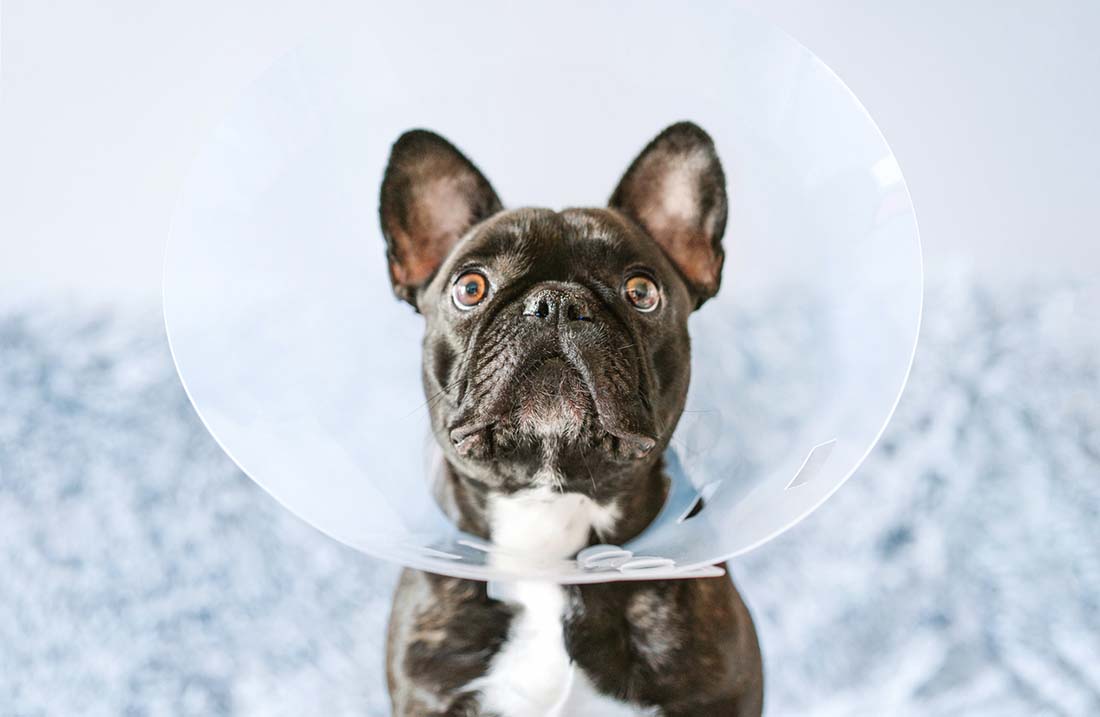Can Dogs Eat Shrimp? Sharing Shellfish With Your Pup.
If you’ve ever wondered whether or not dogs can eat shrimp, here’s everything you need to know about feeding shrimp and other shellfish to your furry friend.
Pet parents looking for new foods to introduce or different sources of nutrients dogs need might consider adding seafood to their dog’s diet. If you’ve ever wondered whether or not dogs can eat shrimp, here’s everything you need to know about feeding shrimp and other shellfish to your furry friend.
Can I Let My Dog Eat Shrimp?
Yes, dogs can eat shrimp! Cooked shrimp is totally safe for dogs as long as the shrimp shells and shrimp tails are removed (these can be a choking hazard). While perfectly safe, shrimp can be high in cholesterol and is best shared with pups in moderation.
How Much Shrimp Is Safe For Dogs?
Whenever introducing a new food to your dog’s diet, start by giving it to them in moderation. You never know how your dog may react to a food they’ve never had before. Since shellfish allergies are more common than allergies to some other foods, it’s definitely a food to share moderately at first.
One or two pieces are a great place to start, but you can always ask your vet for recommendations about how much to feed your dog.
Health Benefits of Feeding Dogs Shrimp
We know shrimp is safe for dogs, but is shrimp good for dogs? Seafood like shrimp may have some great health benefits for your pooch, and when added to dog food is a great source of essential nutrients that supplement a well-rounded doggy diet.
Phosphorus
Shrimp is a food with a high phosphorus-to-protein ratio, though it is also a source of lean protein. Phosphorus is important for dogs in promoting the growth of healthy bones, strong teeth, and a well-balanced metabolism.
Antioxidants
Antioxidants are important for both human and pet health, and can greatly reduce the risk of certain diseases. Shrimp is full of healthy antioxidants that help protect the body from free radicals, molecules that have been linked to conditions like heart disease, cancer, and liver disease.
Omega-3 Fatty Acids
Another important nutrient found in shrimp is omega-3 fatty acids. Not only do these promote heart and brain health in humans and dogs alike, but pups who get enough omega-3s in their pet food have healthy skin and coats with less dandruff. Dogs with sensitive skin or skin conditions can benefit greatly from a diet rich in omega-3s.
Vitamins & Minerals
Niacin, vitamin B3, and vitamin B12 are two more beneficial nutrients found in shrimp. Niacin is important for your dog’s health because it promotes healthy metabolism, proper digestion, healthy skin and coat, and a healthy nervous system. B vitamins are also essential for a dog’s wellness for metabolism and digestion, but also to support cognitive functioning and the growth of red blood cells.
Can Dogs Eat Raw Shrimp?
No, dogs should not eat raw shrimp. Raw shrimp is safe to eat as a human food when served with cocktail sauce, sushi, or seafood tartar. For dogs, however, raw shrimp is something to stay away from. Sharing raw shrimp and other raw seafood with your dog holds the possibility of harmful pathogens or parasites that can cause an upset stomach, bacterial infection, or gastrointestinal upset — especially in small dogs.
Can Dogs Eat Fried Shrimp?
Fried shrimp is one way of preparing the tiny crustaceans that you want to avoid sharing with your dog. Most of the time fried shrimp is dipped in breadcrumbs, which can contain trace amounts of preservatives or seasonings that can upset your dog’s stomach, like garlic and onion powder.
The other main reason not to let your dog eat shrimp that’s been fried is because it is usually done so in fatty oil that’s bad for dogs. This can cause stomach problems, can cause your dog to throw up or have diarrhea, and even lead to issues with pancreatitis if they consume too much.
For these reasons, we recommend only sharing shrimp with your dog that’s been baked, boiled, grilled, or steamed.
Can Dogs Be Allergic To Shrimp?
Just like humans, dogs can also have seafood and shellfish allergies. Shrimp is one of the most popular shellfish consumed in the U.S., but it’s also one of the most common shellfish allergies.
To avoid your dog experiencing a harmful reaction, feed them a single small piece of shrimp the first time you introduce it to your dog’s diet. Keep a close eye on your pooch after they’ve had their first shrimp experience to watch for signs of an allergic reaction.
Signs of an allergic reaction to food like shrimp in dogs can include vomiting, diarrhea, or hives. When these symptoms occur altogether, it may indicate your dog is experiencing anaphylaxis.
Signs of Allergic Reactions in Dogs
Dog owners should be mindful of sharing shrimp with their dog for the first time. Watch them closely for a while after to be sure they don’t have an adverse reaction.
As we mentioned, moderation is also key in introducing new foods to your dog’s diet. A small amount will likely cause a less severe reaction, and one that’s easier to manage if your dog reacts at all. Signs of an allergic reaction in dogs can look like:
- Sudden itching or chewing
- Redness of the skin
- Watery eyes
- Sneezing or runny nose
- Swelling of the face
- Increase in body temperature (feeling hot to the touch)
Other Types of Seafood That Are Safe For Dogs
If you have success in feeding shrimp to your dog, pet owners might be inclined to add other types of seafood to their dog’s diet! These include:
- Mussels
Another rich source of omega-3 fatty acids, minerals, vitamins, amino acids, and antioxidants. - Oysters
Full of vitamin B12, protein, iron, zinc, calcium, phosphorus, and selenium. - Wild Salmon
Packed with omega-3 fatty acids and vitamin D. An excellent source of protein, and rich in minerals like magnesium, potassium, and iron. - Sardines
A good source of omega-3 fatty acids, protein, calcium, selenium, and niacin. - Crab (de-shelled)
A great lean protein with lots of vitamin B12 for brain function, omega-3 fatty acids, and amino acids to support your dog’s skin, nails, and muscle tissue. - Lobster (de-shelled)
Dense with nutrients like protein, zinc, and omega-3 fatty acids.
Fish and shellfish in moderation make for a healthy treat and a great way to get some grain-free protein in your dog’s diet!
This content is for informational use only and does not replace professional nutrition and/or medical advice, diagnosis, or treatment. It is not a substitute for and should not be relied upon for specific nutrition and/or medical recommendations. Please talk with your veterinarian about any questions or concerns.








